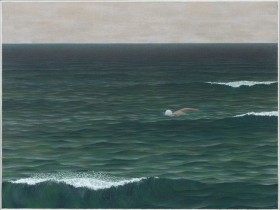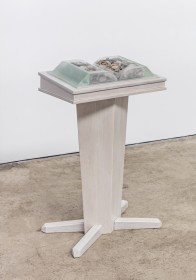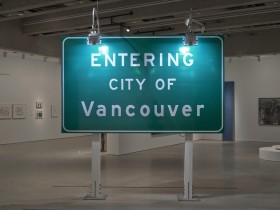Hot Takes: Dayna Danger and Jade Konwataroni McComber

images courtesy of the speakers.
Hot Takes: Dayna Danger and Jade Konwataroni McComber
Using close looking skills and visual vernacular, Hot Takes is an analysis of popular images in the media where we invite creatives, artists and thinkers to discuss one image and decipher and better understand our current cultural and social moment. Join Dayna Danger and Jade Konwataroni McComber for their Hot Takes on their recent Game Camp and Indigenous relations to the land.
Dayna Danger is a 2Spirit, Metis - Saulteaux - Polish visual artist and organizer. Danger was raised on the North-west edge of Win-nipi, Treaty 1 territory, or so called Winnipeg. They are currently based in tiohtiá:ke, or so called Montreal. Through utilizing the processes of photography, sculpture, performance and video, Danger creates works and environments that question the line between empowerment and objectification by claiming the space Ongoing works exploring BDSM and beaded leather fetish masks negotiate the complicated dynamics of sexuality, gender and power in a consensual and feminist manner. Their focus remains on Indigenous and Metis visual and erotic sovereignty. Danger has exhibited their work most recently at the National Gallery of Canada with Àbadakone | Continuous Fire | Feu continuel. Danger was featured on the cover of Canadian Art’s June 2018 Kinship cover. Danger has participated in residencies at the Banff Centre for the Arts and at Plug In Institute of Contemporary Art. Danger is an independent student, pursuing a PhD focused on hide tanning practices from their great grandmother, Madeline, at Concordia University.
Kwe! My name is Jade Konwataroni McComber and I am Kanien’kehá:ka from the Mohawk territory of Kahnawà:ke. I generally identify as queer and use she/her pronouns. I studied in the First Peoples Studies program at Concordia University for 4 years before transferring to the University of New Brunswick where I am studying to become a registered Nurse. My studies and work have surrounded Indigenous food sovereignty and traditional means of seed saving, planting and harvesting our foods and medicines, as well as youth engagement with my work in Nunavik, Eeyou Istchee and my own community. Generally, I’m all about health and healing within Indigenous perspectives. I have not always been graceful in holding my Indigenous identity alongside my queer identity in the same space, but am learning that bringing all of myself to the table has allowed me to braid meaningful relationships with others, finding community and kin.


